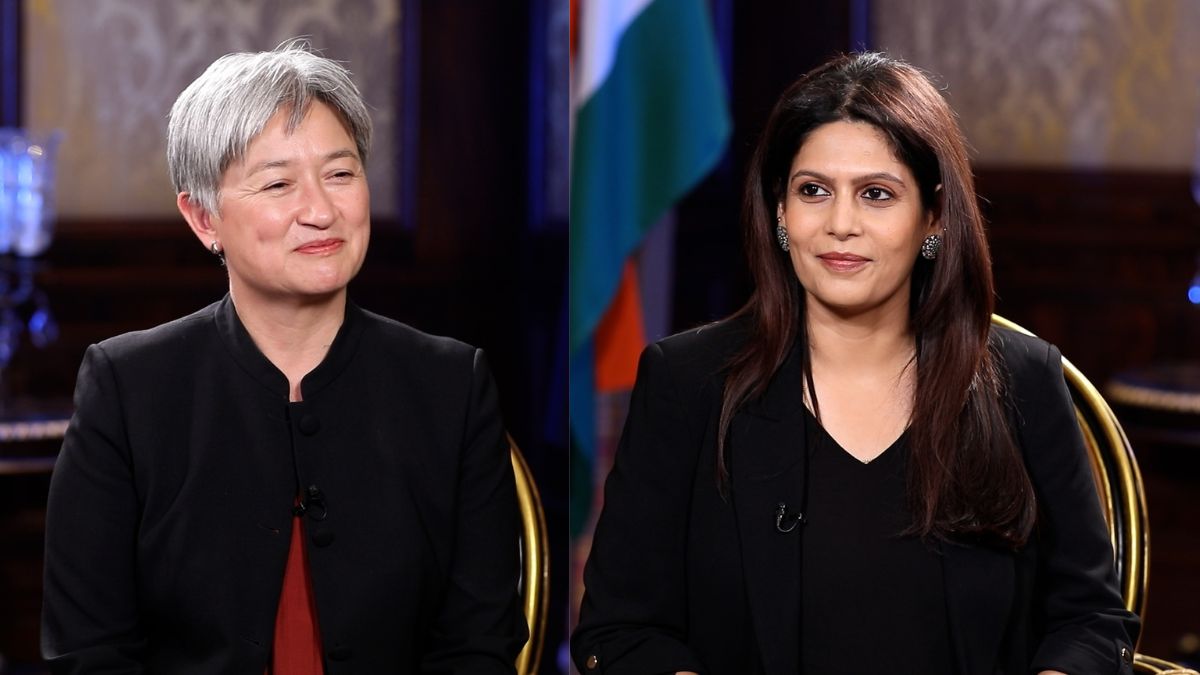Australia views India as a “critical strategic partner” in a rapidly evolving Indo-Pacific and considers the relationship central to regional stability, Foreign Minister Penny Wong said on Thursday.
In an exclusive conversation with Firstpost Managing Editor Palki Sharma, Wong, who is in Delhi for talks with External Affairs Minister S. Jaishankar said the Indo-Pacific is entering a period of uncertainty marked by “new anxieties,” in a strategic convergence between like-minded partners more important than ever.
“We want to be a reliable partner for India,” she said, describing New Delhi as a leading regional and global power and the fastest-growing major economy.
WATCH: India a Critical Strategic Partner in Indo-Pacific: Australian Foreign Minister on Firstpost | N18G
Asked about expanding trade ties, Wong said that while formal agreements matter, the economic relationship goes far beyond negotiations. “We have economic engagement across the board, and we should continue to grow it,” she said.
On concerns in India about tightening visa processes for students, Wong said Australia values the Indian community and wants to ensure high-quality education for all foreign students. She rejected the perception that Indians face longer scrutiny, attributing recent changes to broader reforms aimed at improving vocational training standards.
Responding to reports of rising hate crime complaints, Wong emphasised that Australia “stands against racism” and that law enforcement is empowered to act when extremist groups cross the line from protest to unlawful behaviour. “There is no place for racism and discrimination in our country,” she said.
Quick Reads
View AllWong also reiterated Australia’s willingness to deepen strategic cooperation, including intelligence sharing, while acknowledging shared concerns around extremism including Khalistani groups. She said Canberra is clear about distinguishing peaceful protest from extremist activity.
On cross-border terrorism, Wong expressed solidarity with India and said Australia “stands against terrorism in all its forms,” including calling out groups and states that offer safe havens.
Discussing China, she described the relationship as “consequential,” noting that Beijing will continue asserting its interests even when they do not align with Australia’s. Canberra’s approach, she said, is to “cooperate where we can, disagree where we must, and engage in the national interest.” India is central to maintaining strategic balance in the Indo-Pacific, she added.
Wong declined to comment on hypothetical conflict scenarios involving Taiwan but stressed that neither India nor Australia supports unilateral changes to the status quo.
Questioned about Australia’s ties with the US under the Trump administration, Wong acknowledged differences on tariffs but maintained that the US remains Australia’s principal strategic partner. She reiterated Canberra’s long-standing opposition to tariffs as a matter of principle.
On Russia, Wong said Australia’s divergent position from India, calling the Ukraine conflict “illegal and immoral,” but stressed that this difference does not overshadow the broader Indo-Pacific focus of the bilateral relationship.
She also addressed concerns over Chinese investment and regional tensions in the South China Sea, pointing to economic diversification and conflict-prevention mechanisms as key priorities.
On COP31, Wong said Australia’s initial bid aimed to amplify Pacific Island voices but acknowledged that discussions continue amid Turkey’s refusal to withdraw. Australia wants Pacific issues to remain central if the event defaults to Bonn, she added.
)